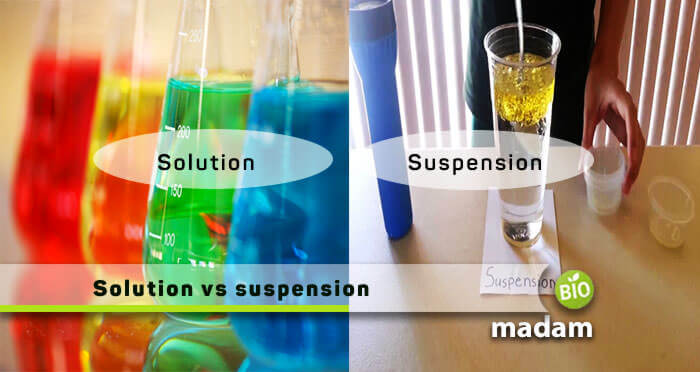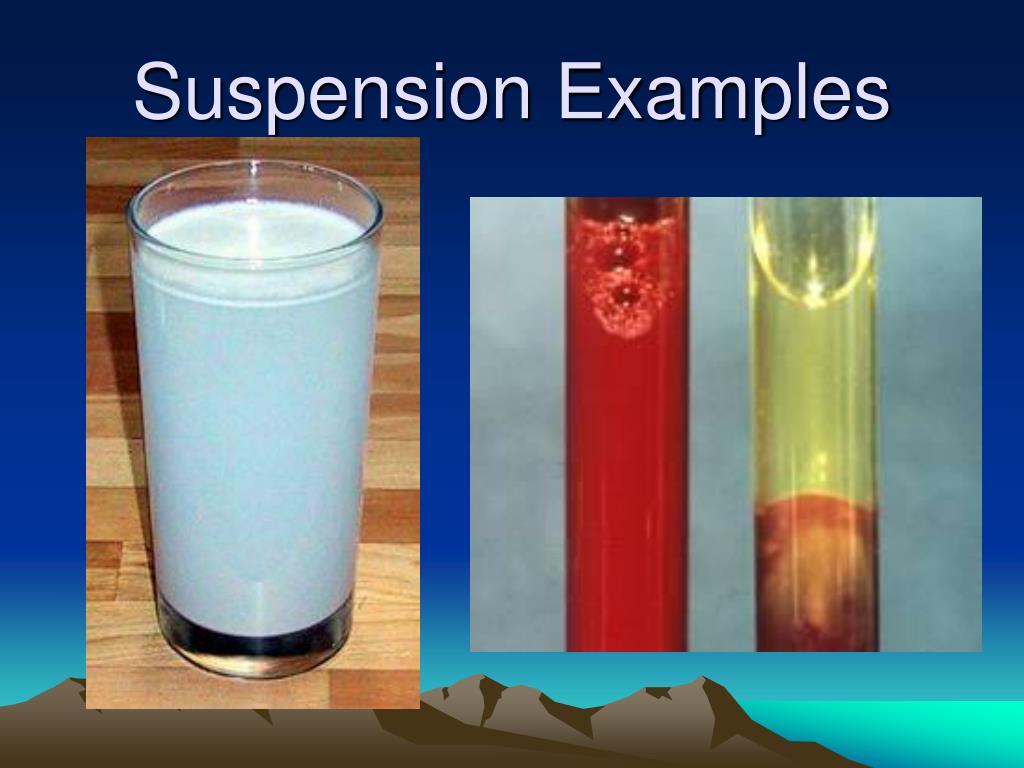
In a solution, the particles are of molecular dimensions, smaller than 10 -7 cm. Gum, milk and blood are typical colloids. Colloid particles cannot be seen by the naked eye or under an ordinary microscope. The dispersed particles show very little tendency to separate.

The suspended particles may settle down after sometime, e.g.,muddy water or smoke in the air.Ĭolloids have particles smaller than 10 -5 cm (generally 10 -7 to 10 -5 cm). The particles can be seen distinctly in the dispersion medium (solvent) by the naked eye or under an ordinary microscope. In suspension, the particle size is of the order of 10 -5 cm or larger. Lies in the size of the dispersed particles. 5) is present in 1000 ml of a solution, it will be known as 1M (1 molar) solution of NaCl.ĭispersion may give rise to a homogeneous (solution) or heterogeneous material (a suspension or a colloid). The number of moles of a solute present in one litre of a solution is called the molarity of that solution. The concentration may be expressed in terms of either mass or moles. The compositions of such solutions are expressed as concentration, which refers to the quantity of a solute dissolved in a definite weight or volume of the solution. The solutions which we generally come across are not saturated. The solution in which no more solute is soluble in the solvent, at given temperature and pressure conditions is said to be a saturated solution under those specified conditions. For example, solubility of salt/sugar increases with the rise in temperature. Solubility varies with temperature and pressure.

It means that no more solute is dissolved in the solvent at the given temperature and pressure.

This solution so obtained is said to be a saturated solution. The maximum mass of substance that is dissolved in 100 g of a solvent under a particular condition of temperature and pressure (for example, the conditions of room temperature and pressure) is referred to as the solubility of that substance in that solvent under the specified conditions.

The component present in a smaller quantity is called the solute. The component that is present in a larger amount is called the solvent.


 0 kommentar(er)
0 kommentar(er)
